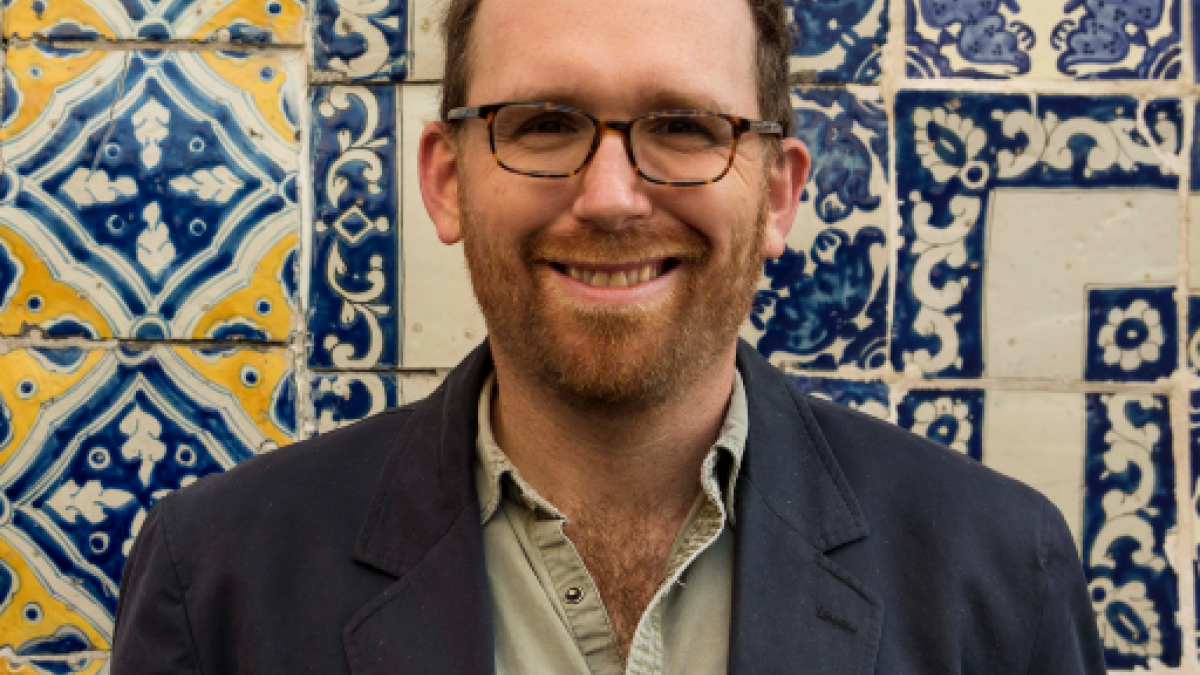ASU Honors Faculty Fellow recognized by Western Literature Association

Alexander Young, Honors Faculty Fellow in Barrett, The Honors College at Arizona State University.
“High-caliber scholarship,” “exemplary” and “bold” were words used by members of the Don D. Walker Prize Committee of the Western Literature Association to describe an essay by Alexander Young, Honors Faculty Fellow in Barrett, The Honors College at Arizona State University.
Young’s essay, titled “Settler Colonial Studies and/as the Transnational Western: Resistance and Representation in Academic Discourse and Cultural Production,” published in History of the Present: A Journal of Critical History 11.1 in 2021, received honorable mention for this year’s award.
The essay, the readers commented, is rife with “sophisticated theorizing,” “well-done close readings” and “meta-critical rigor.”
It is also “high stakes,” laying out a “comprehensive critical web of connections” between the “critical regionalism and the global scale” that includes the weighty “topics of social death, imagined Indigeneity, resistance to capitalism, and the challenge of representation by the anticolonial intellectual mind,” prize committee chair Emily Lutenski wrote in a letter to Young.
The Western Literature Association is holding its annual meeting in Santa Fe, New Mexico, Oct. 19–22. Young’s honorable mention will be officially announced at the conference banquet.
“I am honored to be recognized for my work by the Western Literature Association, a scholarly association that has been an essential community for me since my earliest days in graduate school,” said Young, who earned a PhD in English at the University of Southern California in 2015.
“As a scholar focused on the study of the culture of the U.S. West in its transnational contexts, the WLA is a community that has helped shape so much of my work as a researcher and a teacher at Barrett, so it's great to know that my work is having an impact on a group of scholars who have taught me so much over the years,” he added.
In the article, Young compares two recent Western films – the 2016 U.S. film "Hell or High Water," directed by David Mackenzie, with a screenplay written by Taylor Sheridan, of "Yellowstone" fame, and "Goldstone," written and directed by Indigenous Australian filmmaker Ivan Sen, that are critical of the myth-making function of their genre.
Young said he has long been fascinated with the “often troubling ways that the United States and Australia mythologize their remarkably similar histories of frontier violence,” adding that there is a decades-long tradition of Australian Westerns that dramatize, and often distort, the history of the conquest of Indigenous peoples in the same way that the Western genre has dramatized and distorted similar history in the U.S.
“These contemporary Westerns, I argue, force their audiences to ask pressing questions about the national mythologies that misrepresent the ongoing violence of settler colonialism, and allow us to think about new possibilities for imagining the relationship between settlers and Indigenous peoples,” Young said.
Young has taught Sen’s films during Barrett Honors College’s study abroad program in Australia and in an honors course on race and sexuality in the Western last semester.
“Both times I taught Sen's work, I've been so impressed by Barrett students' ability to build on my enthusiasm for his films to make original critical insights about them,” Young said.
“This particular article also had its origins in my work as a teacher: I saw 'Goldstone' during its theatrical release in Melbourne, Australia, when I was teaching my first study abroad course, when I was a postdoctoral scholar at USC. It had a profound impact on me, and one of my students on that trip, Bowen Du, who is now a graduate student at UC Davis, is writing a dissertation on literature and settler colonialism, and is a member of the WLA!
"So it's extra rewarding to have a piece of my scholarship recognized that has been so closely tied to my work in the classroom.”
More Arts, humanities and education

ASU professor's project helps students learn complex topics
One of Arizona State University’s top professors is using her signature research project to improve how college students learn…

Award-winning playwright shares her scriptwriting process with ASU students
Actions speak louder than words. That’s why award-winning playwright Y York is workshopping her latest play, "Becoming…

Exceeding great expectations in downtown Mesa
Anyone visiting downtown Mesa over the past couple of years has a lot to rave about: The bevy of restaurants, unique local shops…

